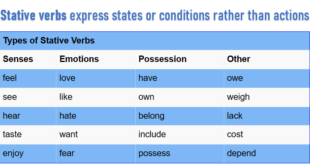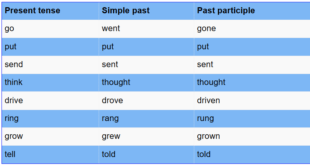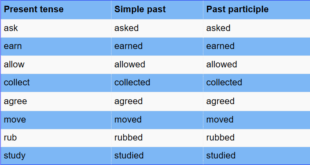Adverbs![]()
Adverbs
Adverbs describe or give information about a verb, adjective, adverb, or phrase and are often used to show time, manner, place, or degree.
We usually add the suffix “ly” at the end of an adjective to make it an adverb.
- She spoke kindly.
- You drive slowly.
- We walked quickly.
Adjectives that end in “y”, we take out the “y” and add “ily” to make them adverbs.
- easy – easily: They won the game easily.
- heavy – heavily: It was raining heavily.
Adjectives that end in “ble, le”, we replace “e” with “y” to make them adverbs.
- possible – possibly
- probable – probably
- simple – simply
Some adverbs change in meaning when we add the suffix “ly” at the end of them.
- It was raining hard [heavily]
- We hardly know each other. [almost not]
- We arrived late. [after the expected time]
- I’ve been very busy lately. [recently]
Adjectives that end in “ic”, we add “ally” to make them adverbs.
- basic – basically
- specific – specifically
- technic – technically
Some adjectives don’t change when we use them as adverbs.
- fast, long, early, little, hard, high, late, near, straight, wrong, yearly, etc.
Some adverbs don’t end in “ly.”
afterward, already, almost, back, better, best, even, far, fast, hard, here, how, late, long, low, more, near, never, next, now, often, quick, rather, slow, so, soon, still, then, today, tomorrow, too, very, well, where, yesterday
Adverb of manner
- She drives carefully.
- They talk slowly.
- Jim swims well.
When the adverb of manner comes before the main verb, this places emphasis on the adverb.
- I easily passed the test.
- He quickly walked away.
An adverb of manner cannot come in between a verb and its direct object.
- ✓ He closed the door quickly.
- ✓ He quickly closed the door.
- ꭗ He closed quickly the door.
- ✓ She ate her sandwich slowly.
- ✓ She slowly ate her sandwich.
- ꭗ She ate slowly her sandwich.
Some adverbs always come after the verb.
- She was driving fast.
- It was raining hard.
- Did you sleep well?
good and well
- He is a good player. [adjective]
- The team played well. [adverb]
Here is a list of adverbs of manner that you can use in your daily conversation.
| Adverbs of manner | ||
| Positive manner | Negative manner | Positive/Negative manner |
| Carefully | Angrily | Slowly |
| Easily | Stupidly | Suddenly |
| Honestly | Sadly | Hurriedly |
| Politely | Poorly | Regularly |
| Perfectly | Cruelly | Hard |
| Gladly | Recklessly | unexpectedly |
| Kindly | Madly | rarely |
| Well | Badly | Fast |
Adverb of place
The adverb of place tells us where things take place.
- Put it there.
- Bring the bottle here.
- Do you live nearby?
- Let’s find somewhere to park.
- We didn’t go far.
Adverbs expressing location.
- It was raining, so we stayed inside.
- My friend is a long way behind.
- I will wait outside.
Adverbs expressing the direction of movement.
- The ship turned northward.
- We were walking along in a line.
- We can’t swim across.
Adverbs expressing an unspecified location or direction.
- I have to go somewhere.
- I have nowhere to stay.
- He follows me everywhere.
- Put the box down anywhere.
Adverbs of place come before adverbs of time.
- We have to wait here for half an hour.
- I’ll meet you outside at three o’clock.
Adverb of time
Adverb of time tells us when, for how long, or how often things take place.
- I’m not hungry now. [when]
- We arrived yesterday. [when]
- He has been working all day. [for how long]
- He has been absent for three days. [for how long]
- I pay my rent monthly. [how often]
- I seldom eat fast food. [how often]
Adverb of frequency tells us how frequently things happen or are done.
- Are you paid monthly?
- She seldom writes to us.
There are two types of the adverb of frequency:
- Adverbs of definite frequency
- Adverbs of indefinite frequency
Adverbs of definite frequency specify the exact time frame of an action and come at the end of the sentence.
- The zoo is open daily.
- We go shopping weekly.
- They pay the rent quarterly.
Adverbs of indefinite frequency don’t specify the exact time frame of an action.
- He always comes late.
- I often walk alone.
- I seldom eat fast food.
- His room is never tidy.
Adverbs of indefinite frequency come after the auxiliary verb but before the main verb.
- You should always tell the truth.
- I can never forgive myself.
Adverbs of indefinite frequency come after the verb “to be,” even if the verb ‘to be’ is the main verb.
- I am always free in the morning.
- We are seldom together.
- This is often not possible.
We can put “frequently, usually, normally, sometimes, occasionally”, at the beginning or end of a sentence.
- Usually, I walk to work.
- Sometimes I go by car.
- Normally, I don’t drink at lunch.
- I see her frequently.
- I wear skirts occasionally.
Adverb of degree
Adverbs of degree tell us about the degree of intensity of an action, an adjective, or another adverb.
- I totally agree with you.
- The sauce was mostly cream.
- It’s kind of cold in here.
- I’m slightly confused.
Adverbs of degree come before the word they are modifying.
- I nearly fell off my chair. [modify verb]
- The house isn’t big enough. [modify adjective]
- He could run very fast. [modify adverb]
Adverbs of degree list
| almost | highly | purely |
| absolutely | how | quite |
| awfully | incredibly | rather |
| badly | indeed | really |
| barely | intensely | scarcely |
| completely | just | simply |
| decidedly | least | so |
| deeply | less | somewhat |
| enough | little | strongly |
| enormously | lots | terribly |
| entirely | most | thoroughly |
| extremely | much | too |
| fairly | nearly | totally |
| far | perfectly | utterly |
| fully | positively | very |
| greatly | practically | virtually |
| hardly | pretty | well |



I like what you guys are up too. This kind of clever work and exposure! Keep up the awesome works guys I’ve included you guys to my blogroll.